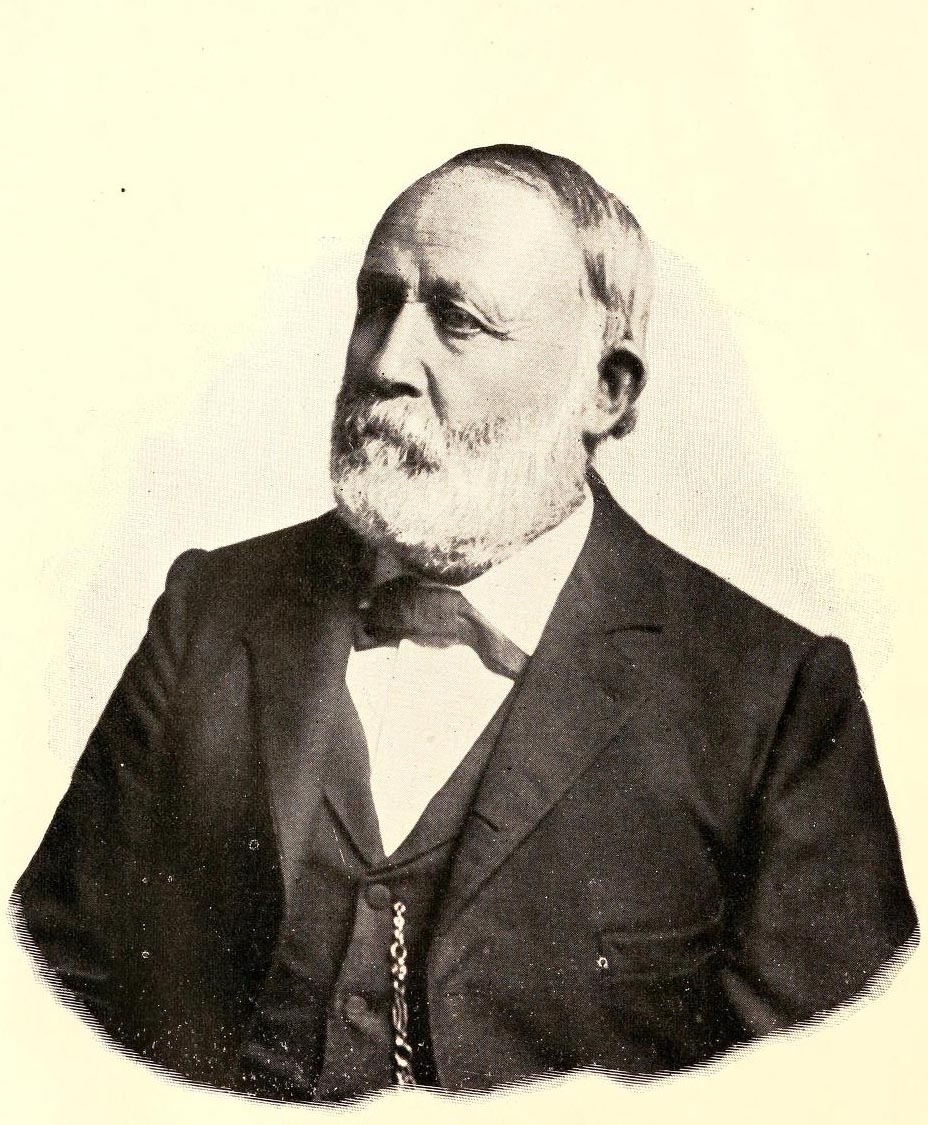27 Oct. 1810–26 Sept. 1862
Benjamin Newton Trollinger, textile manufacturer and business adventurer, was born in the community of Haw River in Orange (now Alamance) County, the son of Joseph John and Elizabeth Rony Trollinger. The Trollingers of Haw River were descended from Adam Trollinger, who was born near the Rhine in Germany and settled on the west bank of Haw River about 1745.
Benjamin N. Trollinger was a member of the North Carolina General Assembly in the 1836 session. Eight years later, in 1844, he built one of the first cotton mills in present-day Alamance County. A promoter of internal improvements, he was a great supporter of the North Carolina Railroad. He and his partner and brother-in-law, Dr. D. A. Montgomery, were large contractors for the railroad in Alamance, Orange, Wake, and Johnston counties. They made brick and built bridges over Haw River, Back Creek, and both crossings of the Eno River at Hillsborough. They also ran a steam sawmill at Asbury and Cary, Wake County, for the purpose of cutting ties for the railroad.
The North Carolina Railroad wanted to locate its repair and maintenance shops on land slightly west of what is now Burlington and were shocked when they found that people in western Alamance could not be persuaded to sell their land. Had not Ben Trollinger come

to the rescue at this point, the county might have lost the shops altogether. The railroad, he said, could build shops on his property two miles west of Graham. The railroad accepted this offer after acquiring several other tracts. This land, totaling 632 acres, cost the railroad $6,748.
After the railroad was completed, Trollinger built a hotel at Haw River with the hope that it would become a stopping place for the trains. However, another hotel went up at Company Shops, and the Trollinger hotel failed. Being a man of great energy, Ben Trollinger did not stop but went to Clayton, Johnston County, and began producing spirits of turpentine. This enterprise proved profitable, and, needing a larger area in which to work, he moved to Richmond County, where he and his father bought 5,000 acres of pine land in order to produce turpentine there. The operation was successful, but when the Civil War began in 1861, foreseeing that the Confederacy would need salt, he started two separate salt works south of Wilmington.
There, in the summer of 1862, he became ill with yellow fever. He died and was buried at Haw River.
Trollinger married Nancy Elizabeth Montgomery, and they had a son and two daughters: John, Sallie, and Mary Frances.